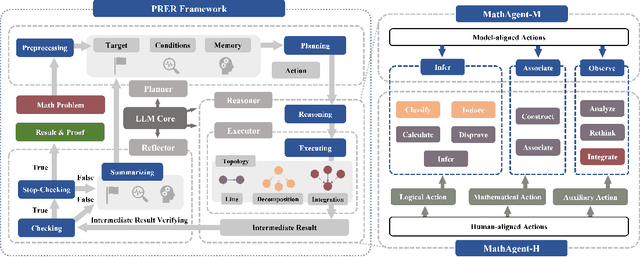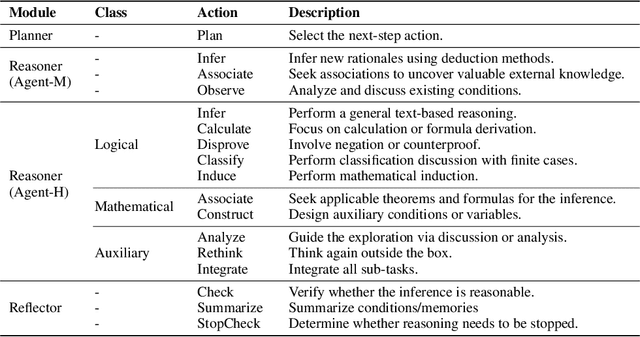Modeling Complex Mathematical Reasoning via Large Language Model based MathAgent
Paper and Code
Dec 17, 2023



Large language models (LLMs) face challenges in solving complex mathematical problems that require comprehensive capacities to parse the statements, associate domain knowledge, perform compound logical reasoning, and integrate the intermediate rationales. Tackling all these problems once could be arduous for LLMs, thus leading to confusion in generation. In this work, we explore the potential of enhancing LLMs with agents by meticulous decomposition and modeling of mathematical reasoning process. Specifically, we propose a formal description of the mathematical solving and extend LLMs with an agent-based zero-shot framework named $\bf{P}$lanner-$\bf{R}$easoner-$\bf{E}$xecutor-$\bf{R}$eflector (PRER). We further provide and implement two MathAgents that define the logical forms and inherent relations via a pool of actions in different grains and orientations: MathAgent-M adapts its actions to LLMs, while MathAgent-H aligns with humankind. Experiments on miniF2F and MATH have demonstrated the effectiveness of PRER and proposed MathAgents, achieving an increase of $12.3\%$($53.9\%\xrightarrow{}66.2\%$) on the MiniF2F, $9.2\%$ ($49.8\%\xrightarrow{}59.0\%$) on MATH, and $13.2\%$($23.2\%\xrightarrow{}35.4\%$) for level-5 problems of MATH against GPT-4. Further analytical results provide more insightful perspectives on exploiting the behaviors of LLMs as agents.
 Add to Chrome
Add to Chrome Add to Firefox
Add to Firefox Add to Edge
Add to Edge